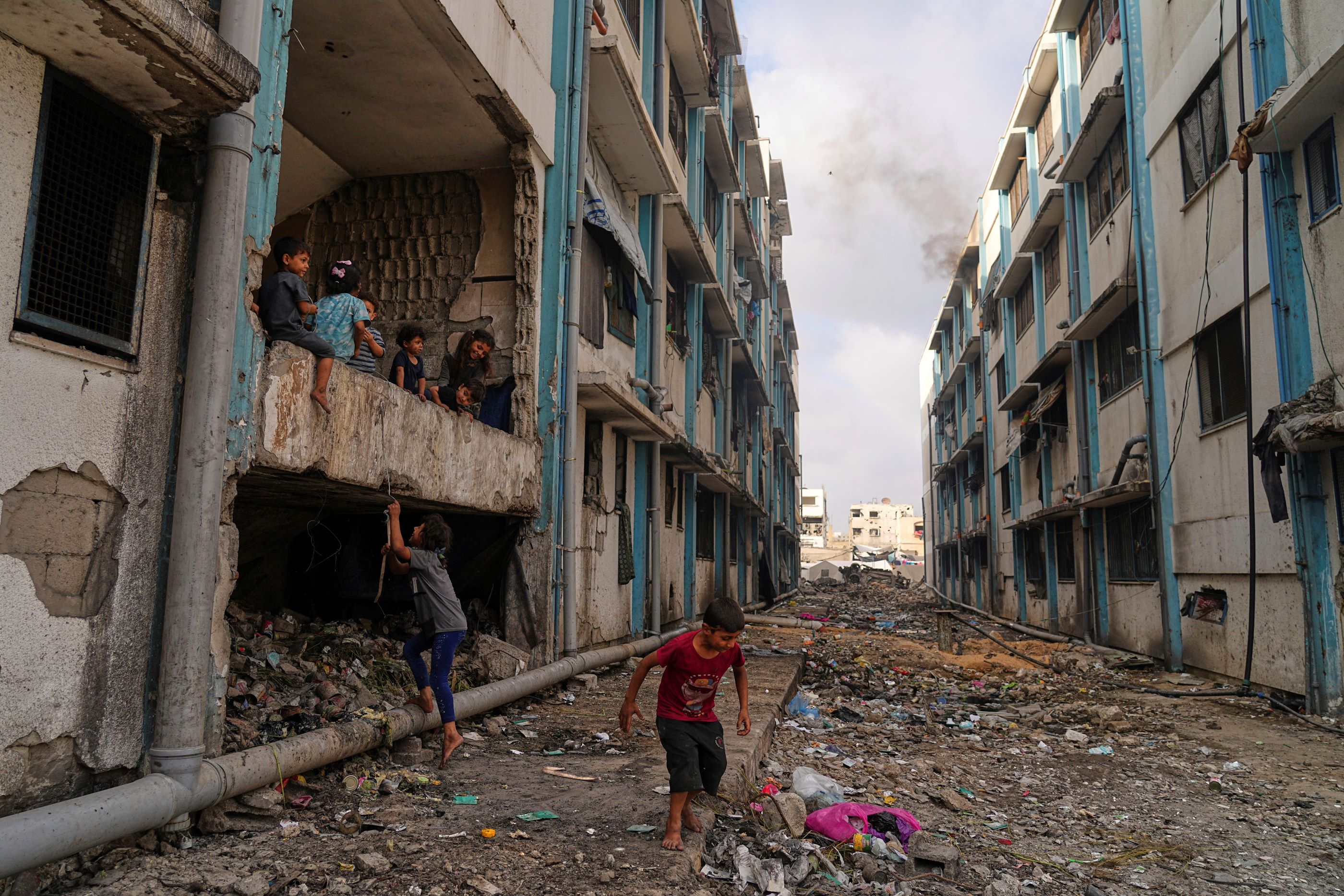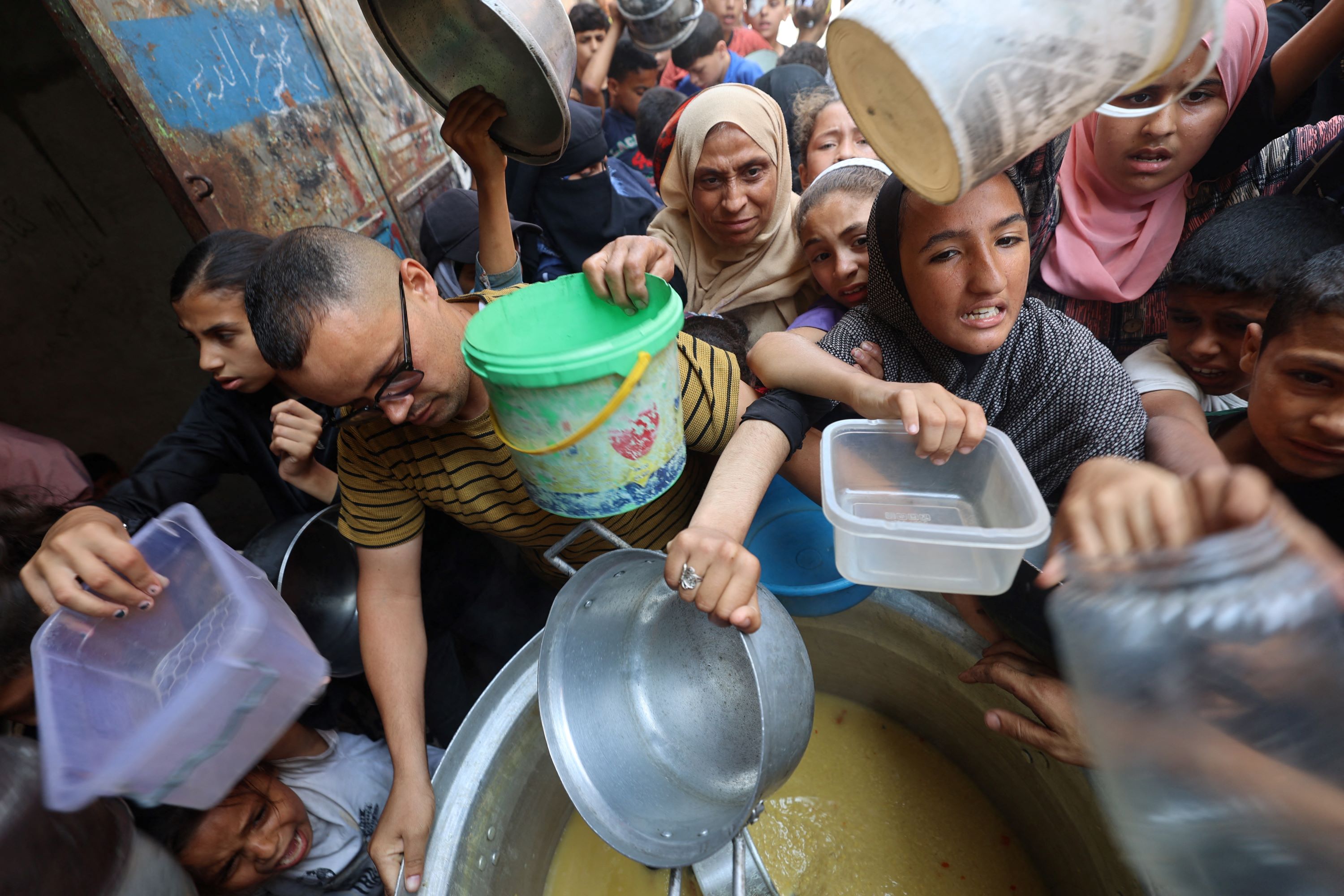
GAZA/UNITED NATIONS - At least 17 Palestinians were killed by Israeli forces on Monday while waiting for food near two aid distribution centers in the southern Gaza Strip, Palestinian medical sources said.
Three separate Palestinian medical sources, speaking on condition of anonymity, told Xinhua that at least 10 Palestinians were killed by Israeli army fire while waiting for aid near a US-backed distribution center in the northwest of Rafah, southern Gaza Strip.
Seven others were killed while waiting for aid in the south of Khan Younis, according to a statement issued by the Nasser Medical Complex in the city.
There was no immediate comment from the Israeli army on either incident.
READ MORE: At least 41 Palestinians ‘killed in Israeli attacks on Gaza’
In addition, the Israeli army issued new evacuation orders for the city of Khan Younis, saying it is "operating with extreme force to destroy the terrorist organizations in the area and will attack any site used for launching rockets".
In a separate statement, the Israel Defense Forces said its troops had operated in the Jabalia area of the northern Gaza Strip over the past week to examine and dismantle several underground tunnel routes that were used by Hamas militants.
At least 5,685 Palestinians had been killed and 19,518 others injured since Israel renewed its intensive strikes in Gaza on March 18, bringing the total death toll since October 2023 to 55,998, and injuries to 131,559, Gaza-based health authorities said on Monday.
Meanwhile, UN humanitarians warned that vital telecommunications in Gaza, which have been repaired after being down for days, may go down again because of fuel shortages.
READ MORE: Pro-Palestinian activist Khalil walks free after US judge orders release
"Over the weekend, telecommunications were restored across Gaza after damaged fiber cables were repaired," the UN Office for the Coordination of Humanitarian Affairs (OCHA) said on Monday.
"Humanitarian teams have had more than 24 hours of relatively stable connectivity, something that is essential to coordinate emergency relief and save lives."
OCHA said that without urgent fuel deliveries, telecommunications will go down again very soon. Fuel is also needed to keep emergency rooms running, power ambulances and operate water desalination and pumping stations.

The office said that humanitarian teams are rationing what little fuel remains and working to retrieve stocks stored inside Gaza in areas that are difficult to access. One of the teams was able to access fuel stored in Rafah. If the mission can retrieve the fuel, it would buy critical services a bit more time, although not much.
OCHA said Israeli authorities need to facilitate movements of fuel in sufficient quantities into and throughout Gaza, especially to and within the north, where fuel movements have often been denied.
ALSO READ: '50 killed' in Israeli strikes amid new Gaza evacuation order
The office pointed out that most of Gaza is in areas where humanitarian teams are required to coordinate every movement with the Israeli authorities. Over the weekend, the United Nations and its partners attempted to coordinate 16 humanitarian movements. Half of them were denied outright, hindering the trucking of water and fuel, the provision of nutrition services and the retrieval of bodies.
However, OCHA said that some efforts to remove solid waste and the movement of staff within Gaza were allowed. The delivery of supplies was not permitted.
The office said Israeli authorities issued another evacuation order for two Khan Younis city neighborhoods. The neighborhoods were already subject to earlier displacement orders and included two hospitals.
ALSO READ: International community must push for de-escalation in the Middle East
OCHA said that while the authorities made it clear that hospitals were not required to evacuate, the designation of the displacement area hinders access to the facilities for both patients and medical staff. Access to the Nasser Medical Complex has been challenging due to a lack of fuel for transportation, and health workers and patients fear for their safety.
The humanitarians said that in Khan Younis, inpatient admissions at field hospitals increased threefold last week, mainly due to access challenges at Nasser, which also saw an influx of trauma patients and has been overwhelmed since.


